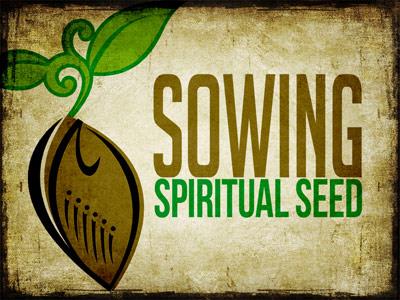-
Four Soils
Contributed by Bill Butsko on Nov 28, 2017 (message contributor)
Summary: This message compares the soil types of the ground with the soil types of the heart.
Message: “Four Soils”
Text: He said, “The knowledge of the secrets of the kingdom of God has been given to you, but to others I speak in parables, so that, though seeing, they may not see; though hearing, they may not understand”
(Luke 8:10).
What is a parable?
The American Heritage Dictionary states that “It is a simple story illustrating a moral or religious lesson.”
The Zondervan Pictorial Bible Dictionary states “A parable is thus a comparison of two objects for the purpose of teaching.”
A good teacher has the ability to use everyday items or occurrences to get the message across to his listeners. The illustrations used by the teacher helps keep the attention of the listener and at the same time, helps the listener, remember the important points of the message.
Jesus was very good at using items that people were acquainted. He also was very good at putting his message into a story form to keep the attention of the listeners. He used parables to bring to light spiritual truths. He knew that in order for people to understand the parable, they would really have to stop and think about it. His messages were not meant for everyone, but they were meant for those who would listen and discover the truth for themselves. This is well illustrated in the Scripture reading for today.
Jesus often talked about the shepherd and his sheep. He did this because the shepherd and the sheep were well-known figures. He likened the shepherd to himself and the sheep to the people and in this way he could draw people into a thinking frame of mind. Those who wanted to know the truth would discover it and those who did not want to know would simply not understand and would not even care. In other words, the story or parable would pass over their heads.
He talked about the wise and the foolish virgins who took their lamps out to meet the bridegroom. Five were wise and took extra oil for their lamps and five were foolish and did not take extra oil. He was indicating to the listeners that he was the bridegroom and the virgins were people of the day. We do not know when Jesus will return and carry us into his kingdom, so we must always be prepared.
Jesus told a story about two sons. One son rejected his father, but later changed his mind and obeyed. The other son said yes to his father, but then did not follow through. Jesus was telling people that those who repent and see the light will appear in the kingdom of heaven. Those people who are like the second son, religious pretenders, who put on a good front, but fail to follow through after making a commitment, will not enter the kingdom of God, but will spend eternity in hell.
Our Scripture lesson talks about the sower, the seed, and the soil. When Jesus told this story or parable, people knew about sowing because there were many farmers. The people knew about seeds because seeds had to be planted if there was to be a harvest. They also knew about the soil because that is where the seeds were buried, but before they could be buried, the soil had to be prepared.
What is soil? You might say it is dirt. Soil is made up of beaten weathered rocks, animal matter, plant matter, and minerals. The basic types of soil include clay, sand, and silt. Soil is formed over a long period of time. Also, soil type varies depending what part of the country you are in. The types of vegetation, the weather conditions, and the animal life play a role in the type of soil present.
Here in the State of Florida, we have sandy soil. In the hills of Southern Ohio where I lived, the soil was clay and it was very hard.
Jesus talks about four different types of soil. They are:
1. hard soil – those who refuse to believe God’s Word
2. rocky soil – those who just believed God’s Word
3. thorny soil – materialistic worrying people
4. good soil – dedicated followers of God’s Word
1. Let’s consider the hard soil.
If we continuously walk on the same ground day after day, week after week and month after month, it will be packed down and become very hard. I am sure that most of us have walked on a dirt path. If you hike through the mountains or through the woods, you will be walking on dirt paths. I remember living in the country. The only paths we had were dirt paths. It was a real treat to go into town and walk on a concrete sidewalk.
In Jesus’ day, and probably many years after that, farmers would walk through the field and toss seeds from a bag they carried on their shoulder. The farmer was not ignorant or irresponsible, but this was the accepted way to sow seed. The farmer did not have equipment like we have today. So, what he really intended to do was to get enough seed on the ground in hopes that it would take root and produce a decent harvest.

 Sermon Central
Sermon Central



